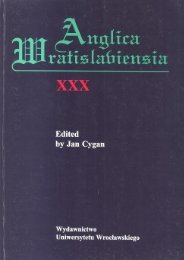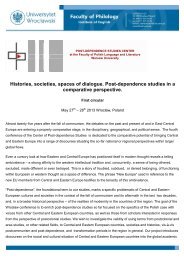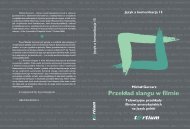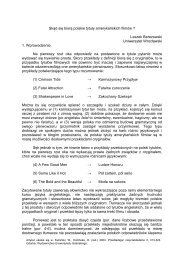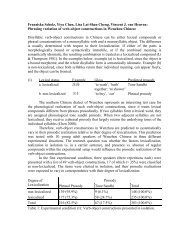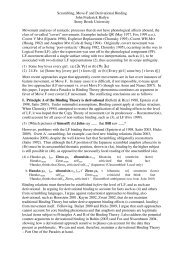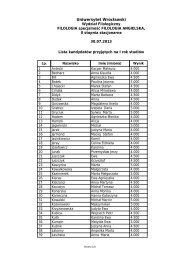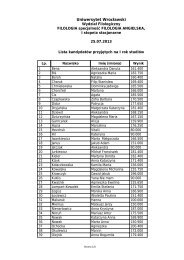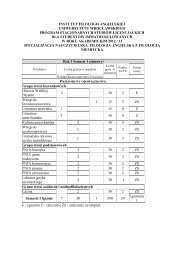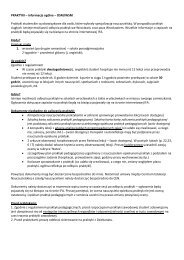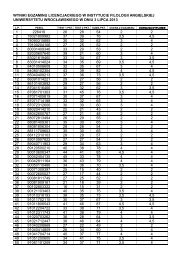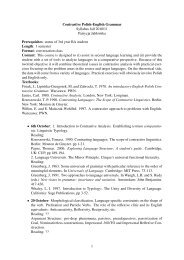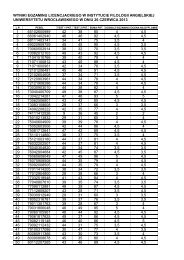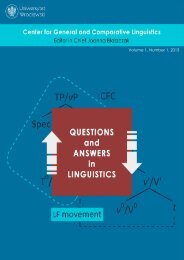Academic Journal Modern Philology
Academic Journal Modern Philology
Academic Journal Modern Philology
You also want an ePaper? Increase the reach of your titles
YUMPU automatically turns print PDFs into web optimized ePapers that Google loves.
<strong>Academic</strong><br />
<strong>Journal</strong><br />
of<br />
<strong>Modern</strong><br />
<strong>Philology</strong><br />
Agnieszka Korobczak-Dominguez<br />
Universidade de Wroclaw<br />
ISSN 2299-7164<br />
Vol. I (2012)<br />
s. 45-55<br />
O Fado de Coimbra e Património da Humanidade<br />
Abstract<br />
Fado from Coimbra and World Heritage<br />
On 27 November 2011 fado – a traditional Portuguese music – was added to the World Site of Intangible Heritage<br />
UNESCO, which provided an opportunity to create this article. The following publication presents a history and<br />
origin of fado: the meaning of its name and its linguistic provenience. Article shows roots of this genre of music – its<br />
evolution from an African dance lundum to another called “fado”; its migration from Brazil to Portugal; its turning<br />
into a song full of melancholy and longing. The sense of Portuguese’s beloved word “saudade” is being explained, as<br />
well as the variations of fado music that have led it to the concert halls in the 21 st century. The article, farther more,<br />
describes two common variations of this kind of music, i.e. fado from Coimbra and fado from Lisbon, concentrating<br />
on main differences, such as their subject matter, structure of pieces, key and manner of performance, the source of<br />
which can be found in their origin. The text considers whether “fado” is a proper name of a song of Coimbra, or not.<br />
The aim of the article is to introduce a dispute about the “real” fado, that has been going on between followers of<br />
both trends for years and to answer a question why the fado from Lisbon was added to the UNESCO list.<br />
Keywords: Fado, fado from Coimbra, fado from Lisboa, traditional portugues music, UNESCO list, origin of fado<br />
No dia 27 de Novembro de 2011 o Comité Internacional da Unesco, constituído por 24 países, declarou<br />
o Fado como Património Imaterial da Humanidade. Foi um dia muito especial para os portugueses<br />
porque o valor e o significado do fado finalmente chegou a ser reconhecido mundialmente. O Presidente<br />
da República mostrou-se bastante satisfeito com esta notícia, considerando-a “um motivo de orgulho



